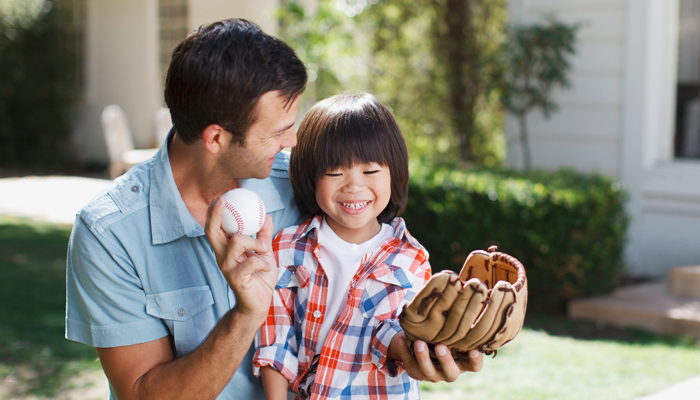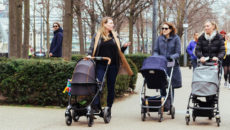On our Facebook page (facebook.com/adoptivefamilies), we asked readers to name one way in which adoptive parenting differs from parenting a biological child. Here’s what you said:
“I had a biological child first, and I immediately saw my dad in my son. With my adoptive child, I was completely free from any preconceived notions about her personality. We didn’t expect her to take after anyone and it was all about discovering herself together. It was strange to realize how our preconceptions affect our parenting experience and approach; the subconscious has so much power. Both of my kids are awesome!” —SAMANTHA
“Knowing that you are not your child’s only parent; there is a whole extra family and history that has to be dealt with in a respectful, empathetic way.” —KAREN
“Not always having medical history to anticipate or recognize a potential medical issue.” —ELIZABETH
“When someone gives compliments about your children’s looks—smile, hair, outward beauty—you can’t take any credit for it (as you might be tempted to with biological kids!).” —JENNIFER
“Yes, but you can wholeheartedly agree without sounding boastful!” —ERIN
“Sending your teenager several states away to spend a few months with her biological mother and grandmother because you know it’s best for her to get to know them and have her questions answered. (Yes, I knew it was a safe, stable home before I sent her because we have an open adoption.)” —WILLOW
“Constantly wondering if the trauma and grief that comes with adoption is the root cause for your child’s every anxiety and fear. Also, learning how best to care for our daughter as she tries to reconcile her story.” —WENDI
“Parenting a child with a different personality from your own and getting a unique perspective on the nature vs. nurture debate. Through adoption, I’ve learned that nature is very powerful in shaping our personality and development.” —KAYLA
“Sadly, not having baby pictures to share with them.” —KELLI
“Trauma parenting looks much different from ‘typical’ parenting. It’s hard and heartbreaking to not know your child’s triggers or to know what’s in his or her past.” —APRIL
“In transracial families, we have to consider the effects and history of a culture and race that is not ours.” —REBECCA
“I can’t blame my child for my stretch marks (ha!).” —MEGAN
“Something fun—I drank at my baby shower.” —KRISTI
“Same! My friends took me out for dinner and, on my second martini, the waiter asked what we were celebrating. I said, ‘My baby shower,’ and he looked very concerned…until we explained!” —STEPHANIE

